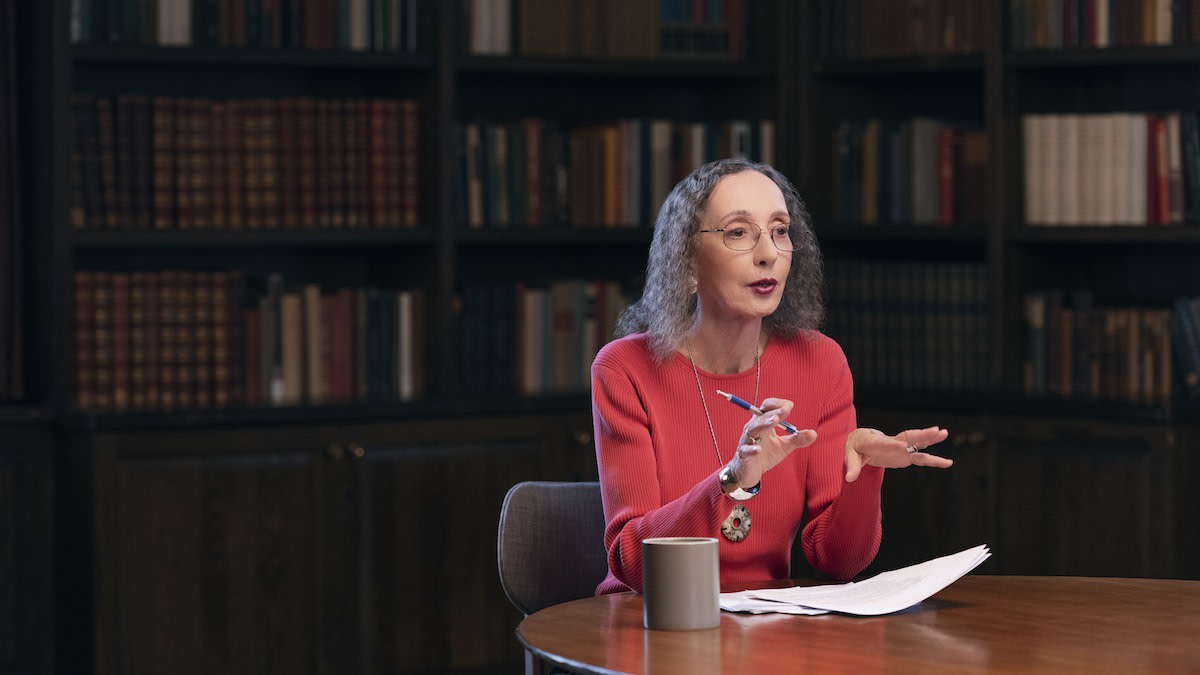Joyce Carol Oates on the Importance of Journaling
Written by MasterClass
Last updated: Sep 13, 2021 • 4 min read
Self-expression in a journal could turn into a work of art. National Book Award-winner Joyce Carol Oates has kept a diary or journal since she was 21 and has found it helpful not only for self-expression and self-knowledge but for observation of the world around her. Get Joyce’s tips for making the most out of a daily writing habit.
Learn From the Best
What Is Journaling?
Journaling is an effective way to keep in contact with your own thoughts. It can take almost any form, but is usually a private record of expressive writing not intended for publication, allowing the writer freedom to work out new ideas without too much judgment. Journals can also serve as records of experiences and observations that can lead to new ideas for short stories, novellas, and other writing projects.
Writing in a journal or diary is a way to record the raw thoughts and observations you have during the day. Journals can be written in stream-of-consciousness style, in bullet points, or with the aid of writing prompts or even doodles. Although journaling can be done on the computer, writing with pen and paper can give your brain and eyes a much-needed break from screens.
The 3 Benefits of Journaling for Writers
The benefits of journaling for mental health are well documented, but for writers, a regular journaling habit can also be useful professionally. If staring at a blank page is anxiety-inducing, a daily journaling practice, whether done with the support of journaling prompts or dear-diary style, can help get you more comfortable with starting writing every day.
- 1. Taking down your thoughts before they escape you is a good way to sharpen your observational skills, especially when you’re traveling.
- 2. Becoming familiar with how people speak and the subjects that move them in conversation will help both with writing dialogue and plotting your fiction.
- 3. Looking back on your old journal entries can provide inspiration for future writing projects, whether you’re writing short fiction or working on your first novel. Some of these entries will be ordinary. Some will be inherently interesting. Some may even start out ordinary and become interesting on repeat readings. With distance, a handful of these observations will become profound and potentially engender some ideas for a story. It’s virtually impossible to predict which notes and observations will resonate three, 10, or 20 years into the future, so it’s important to write them all down and have faith in this part of the writing process.
Joyce Carol Oates’s Journaling Tips
- 1. Have Notebook, Will Travel: Although the prose itself doesn’t need to be elegant, it’s important to use the modes of narrative in your journaling. Push yourself to describe the places you visit—who populates them, how they look, what they smell like, what sort of food or plant life or architecture you see—and record dialogue you overhear or conversations you have with the people you meet.
- 2. Write at Odd Hours: Scheduling your writing time is important, but it’s also a worthwhile practice to write at odd and spontaneous hours, when your mind and mood are altered. Joyce encourages you to do assignments quickly and give yourself no more than 40 minutes to write. A limited time frame gives you the freedom to not fuss over your work and to write into the rush of creativity. Similarly, Joyce encourages you to write when you’re incredibly tired, busy, or even feverish. After allowing a new mental state into your process, you might look over what you’ve done and see something with new potential.
- 3. Capture Your Daydreams: Allow yourself to daydream about your stories and take notes. Go on a walk, Joyce says, and then return home and write down any thoughts about a particular story: characters, details, dialogue. If you repeat this action for a few days, you’ll likely have the disjointed outline of a story. Getting out of the house and moving—going for a walk or run—has been a part of Joyce’s process for years. Many writers have found physical activity to be a way to both activate new ideas and facilitate the creative processing that physicality and distance create. However you do it, engaging in an activity that activates different parts of your brain and body is an important aspect of the writing process. Running, painting, playing music, going on a walk, or any other activity that stimulates you in a different way can lead to a new perspective on current work or pique entirely new ideas for fiction.
Want to Become a Better Writer?
Whether you’re creating a story as an artistic exercise or trying to get the attention of publishing houses, mastering the art of fiction writing takes time and patience. No one knows this better than Joyce Carol Oates, the author of some 58 novels and thousands of short stories, essays, and articles. In Joyce Carol Oates’s MasterClass on the art of the short story, the award-winning author and Princeton University creative writing professor reveals how to extract ideas from your own experiences and perceptions, experiment with structure, and improve your craft one sentence at a time.
Want to become a better writer? The MasterClass Annual Membership provides exclusive video lessons on plot, character development, creating suspense, and more, all taught by literary masters, including Joyce Carol Oates, Judy Blume, Dan Brown, Margaret Atwood, David Baldacci, and more.
